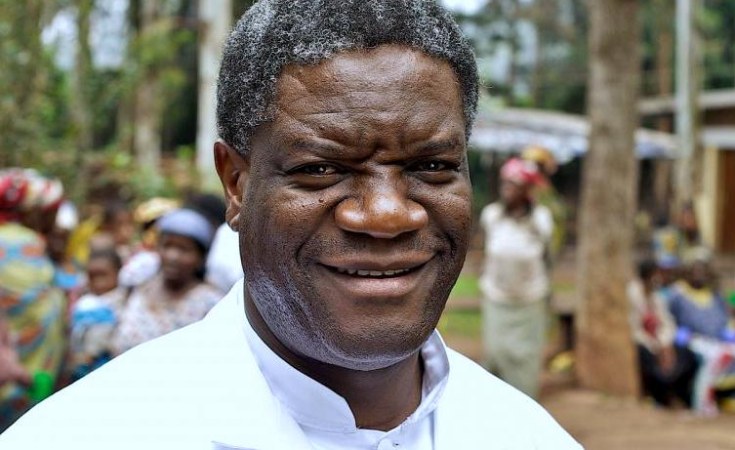Dr. Denis Mukwege, a renowned Congolese gynaecologist and human rights activist, announced plans Monday to run for president of the Democratic Republic of Congo in the December elections. His commitment to ending sexual violence in conflict zones earned him a Nobel Peace Prize in 2018. Mukwege was interviewed virtually Monday by Eddy Isango of VOA's French to Africa Service.
This interview has been edited for brevity and clarity.
Dr. Mukwege, what motivated you to announce a run for the presidency of the DRC?
I think the first motivation is that for several years, members of the Congolese societies have always asked me if I could run for president of the republic. ... But up until then, I'd found it difficult to leave my comfort zone and simply launch myself into this new way of seeing the Congolese people, of helping them. But over the past year, I've seen that the situation in our country -- in terms of security, politics and society -- has deteriorated to the point where we're now in a situation where we fear on an existential level for the unity of our country. In light of this, I found myself in a situation where I have considered this call. And today, I have answered "yes" to the call of Congolese society.
The second reason is that our people live in a situation of unacceptable humiliation. ... I have honors and red carpets everywhere I go. And what happiness can I have ... when my people are humiliated? As an outraged citizen, I think it's time to speak out.
What do you hope to contribute to the Democratic Republic of Congo?
On a local level, by taking care of the sick. We have developed a holistic model of care, which in fact enables us to organize a problem-free health service. We know the country's health problems better than anyone. We've been to almost every province, providing care for the poor and vulnerable. We've set up schools to train nurses ... and so, I believe that this experience can enable us to build a health system in the Democratic Republic of the Congo.
As part of our holistic approach, we have developed a socioeconomic approach, and I can tell you that the model we have created at Panzi [a hospital for survivors of sexual violence in Bukavu] enables women victims of sexual violence to set up their own businesses. ... It has to do with the economy of our country.
We had also developed a mechanism for legal representation. And so today, we have tried to take the mapping report, which is in fact a United Nations report that inventories war crimes, crimes against humanity and even crimes of genocide in the Democratic Republic of the Congo. Based on our claims in relation to this report, we wrote and proposed a document for transitional justice in the Democratic Republic of the Congo.
This holistic model of transitional justice quite simply enables us to rebuild our society, which has been destroyed by war for over three decades now.
On the international level, we're on boards of directors, where decisions are made, for example, on global health, health in Africa. We have good contacts with the Bretton Woods institutions [the International Monetary Fund and the World Bank], so I think that on the political level, we have the experience we need to manage the country.
In your announcement, you warned that the electoral process is already flawed, but you still plan to run.
I believe that with what is happening in the Democratic Republic of the Congo ... when the regulatory texts, including our fundamental law, these texts are not respected; when we are in a situation where human rights are not respected, where there are crimes that are akin to state crimes; when our natural resources are plundered and our raw material exports have no impact on the population ... that not going to the elections would simply mean to leave the way clear for this system of oppression, of slavery, to continue.
And I believe that we're going to go all the way, because we believe that our people are not naïve and ... they won't vote for their oppressors. They'll vote for the people who are for change. ... And today, we are calling on these people not only to go out and vote, but also to defend their vote. To be present at the polling stations, to ensure that the truth of the ballot box is respected this time. And we are training the population to take charge of this election.


